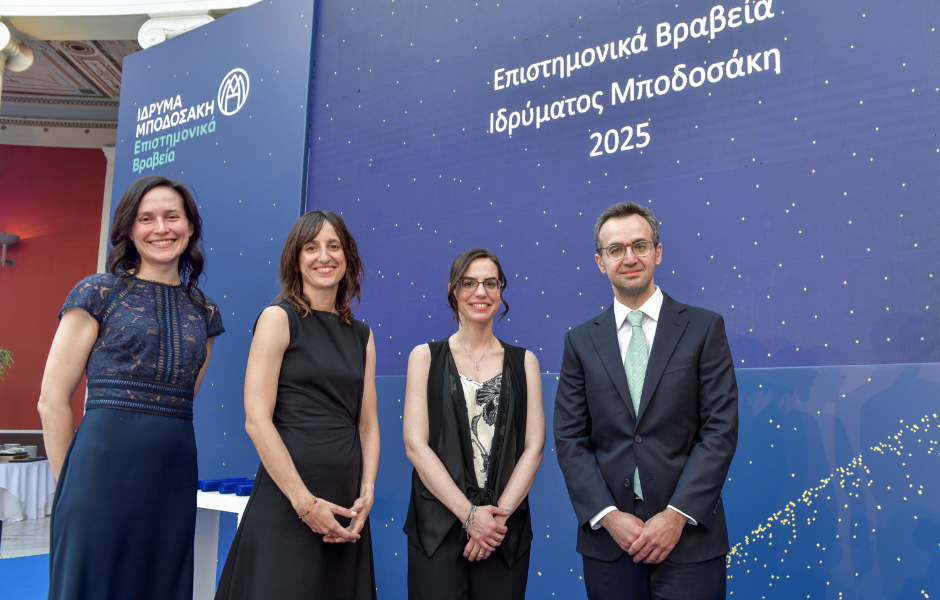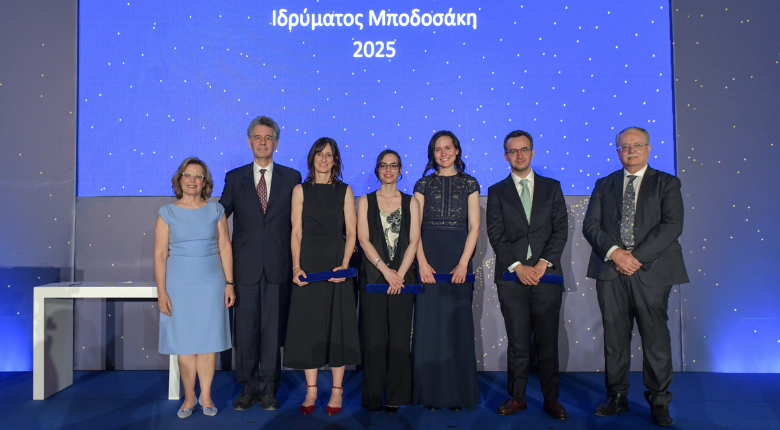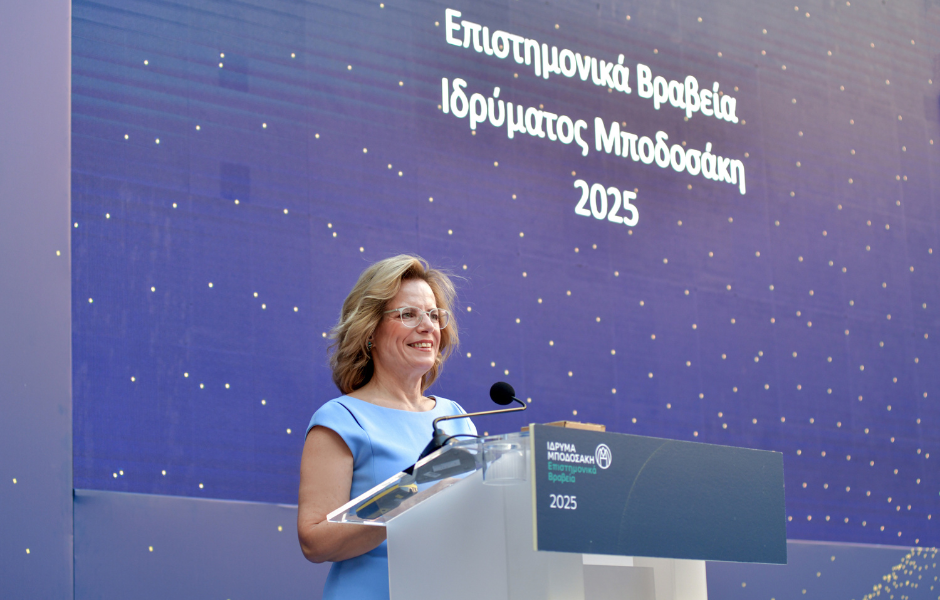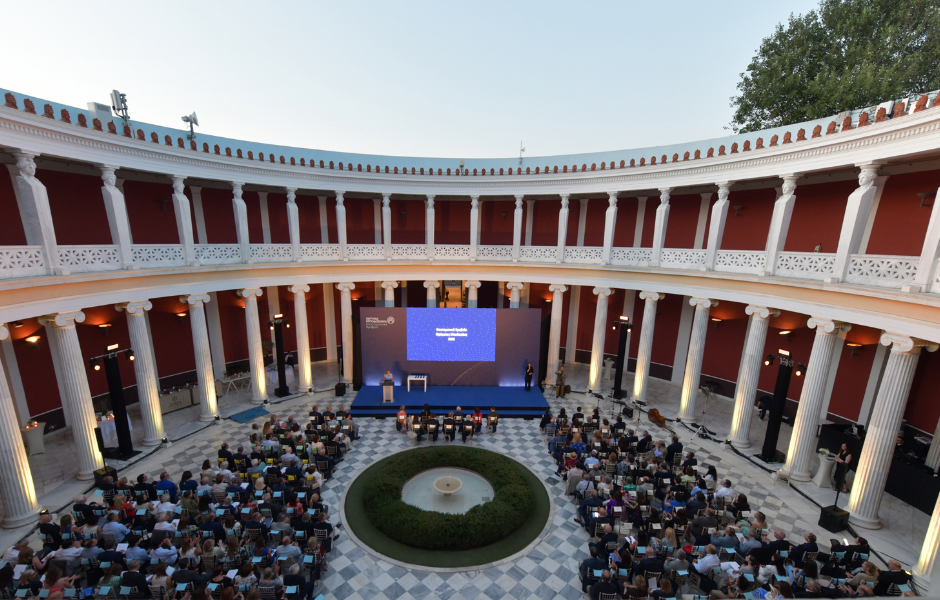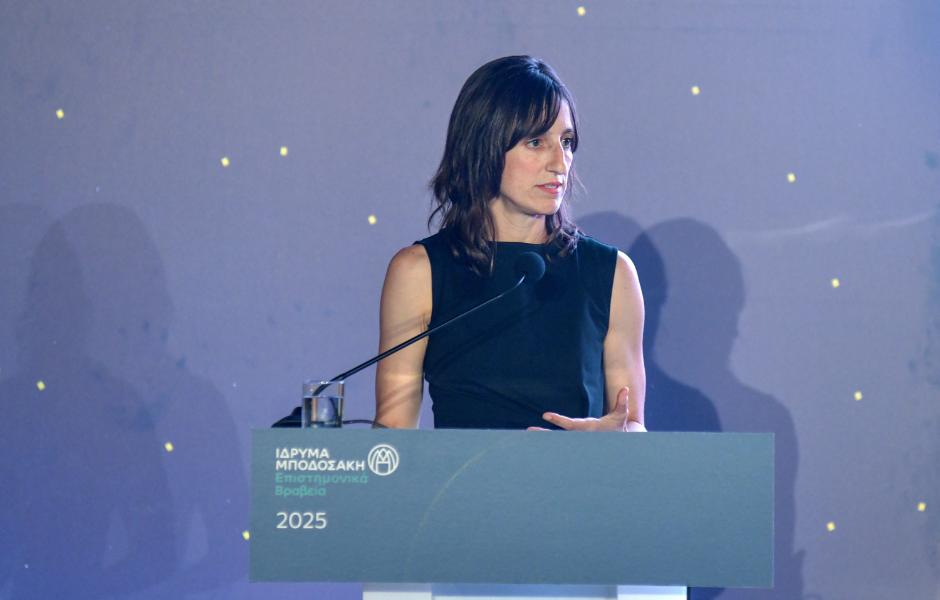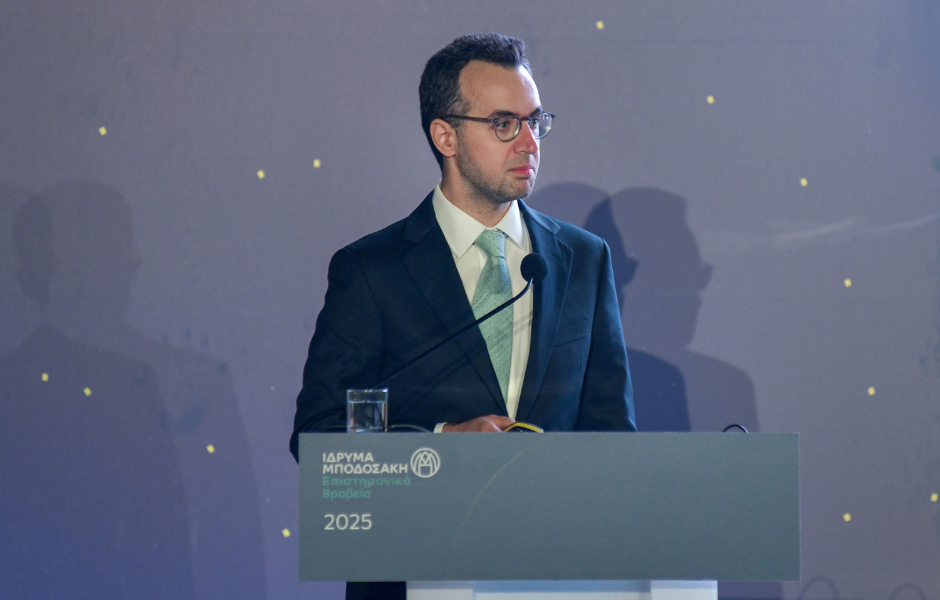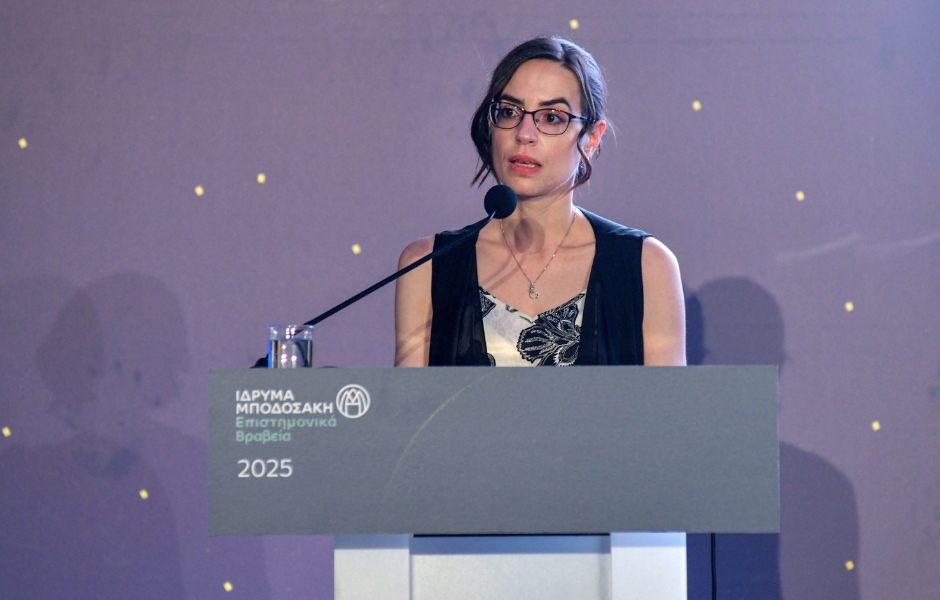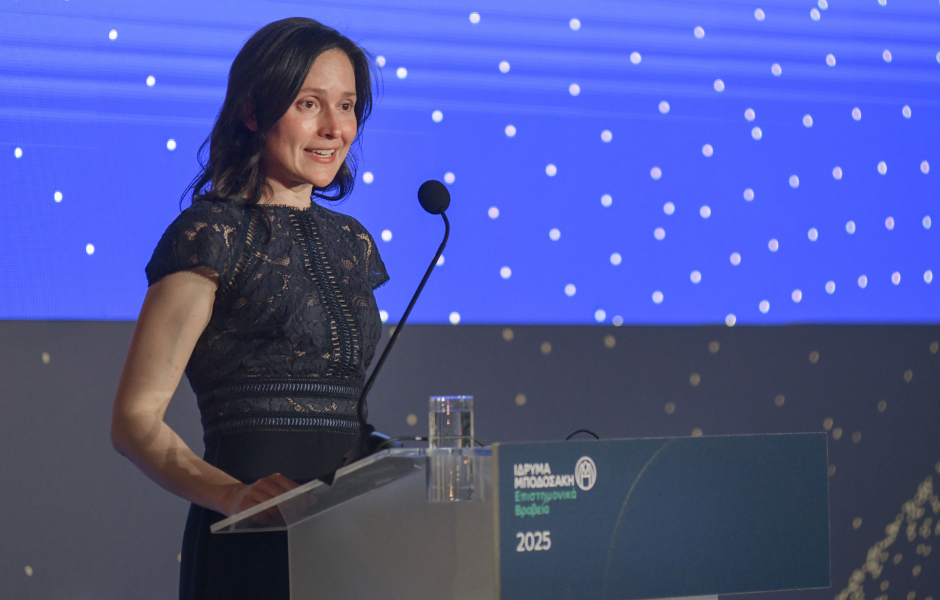On Tuesday, 17 June, the Peristyle of the Zappeion was filled to capacity as four pioneering researchers and innovative scientists, who are each contributing significantly to the advancement of knowledge and society, were honoured at the Bodossaki Distinguished Young Scientist Awards Ceremony 2025. The event was attended by government representatives and prominent figures from the academic, scientific, business, and cultural spheres, as well as from civil society.
The laureates, all of whom are forging exceptional scientific careers both in Greece and internationally, brought their fascinating scientific worlds vividly to life during their presentations. Their work includes the modelling of the invisible universe, the statistical analysis of migrant integration, the decoding of microbial interactions in the human body through a combination of chemistry and microbiology, and the visualisation of the cerebral cortex using artificial intelligence.
The laureates
Maria Petropoulou, Assistant Professor of Physics at the National and Kapodistrian University of Athens, received the Bodossaki Distinguished Young Scientist Award in Basic Sciences in the field of Physics. In her presentation, she invited the audience on a journey through the invisible universe, demonstrating how the combined use of three messengers (light, cosmic rays, and neutrinos) enables a more comprehensive understanding of celestial objects located hundreds of millions of light-years away. Her work bridges theoretical models and astronomical observations and contributes to the rapidly growing field of High-Energy and Multi-Messenger Astrophysics, addressing fundamental questions in astrophysics.
Vicky Fouka, Associate Professor of Political Science at Stanford University, was awarded the Bodossaki Distinguished Young Scientist Award in Social Sciences in the field of Political Science. Her presentation explored how she uses a blend of historical and statistical analysis to study societies that have experienced large migratory flows over time. She examines how various factors and state policies have shaped migrant integration and social identities. Drawing on models of human behaviour from economics and social psychology, she brings together a range of theoretical and empirical approaches. This convergence, she believes, ‘will help deepen our understanding of some of the most pressing challenges in contemporary society, such as political polarisation, the rise of political violence, and conflicts between social groups and nations’.
Stavroula Hatzios, Associate Professor of Molecular, Cellular, and Developmental Biology and Chemistry at Yale University, received the Bodossaki Distinguished Young Scientist Award in Biosciences in the field of Biomedical Sciences. She opened her presentation with the question of how our bodies differentiate between ‘good’ and ‘bad’ microbes, introducing the audience to her lab’s research at Yale. By integrating chemistry and microbiology, her team seeks to unravel complex interactions within the human body. Her work aims to contribute to new methods for diagnosing and treating gastrointestinal cancers and to uncover links between diet, bacteria, and disease—while also inspiring the next generation of scientists, particularly women.
Ioannis Gkioulekas, Associate Professor at the Robotics Institute of Carnegie Mellon University, was honoured with the Bodossaki Distinguished Young Scientist Award in Applied Sciences and Technology in the field of Artificial Intelligence. His research in computational imaging is opening new frontiers in many fields,, including non-line-of-sight imaging, one of the most significant advances in the field over the last decade. At the ceremony, he explained how this technology, powered by advanced computational algorithms, enables the creation of 3D images of hidden objects not directly visible to a camera. This is being applied in many areas, such as endoscopy in medicine and industry, tissue and brain imaging for medical applications, navigation for robots and autonomous vehicles, and in search-and-rescue and military missions.
The 2025 Bodossaki Foundation Scientific Awards were presented by two eminent scientists, who themselves received the Scientific Award in 1996: Professor Ioannis Kevrekidis, Bloomberg Distinguished Professor at Johns Hopkins University’s Whiting School of Engineering and School of Medicine, Professor Emeritus at Princeton University, Corresponding Member of the Academy of Athens, and Member of the U.S. National Academy of Engineering and the American Academy of Arts and Sciences; and Professor Theodoros Theodorou, Professor at the School of Chemical Engineering, National Technical University of Athens, Member of the Academy of Athens and the U.S. National Academy of Engineering. Kevrekidis received the 1996 Scientific Award for Applied Sciences and Technology in the field of Systems, Human, and Cybernetics; Theodorou received the 1996 Award for Basic Sciences in the field of Chemistry.
In her address, Athina Dessypri, President of the Bodossaki Foundation, stressed the broader societal importance of science:
‘For 33 years, we have supported scientific excellence as a vital legacy for the future, continuing with steadfast commitment the vision of Prodromos Bodossakis Athanasiadis. The Scientific Awards not only honour scientific achievement, they also reflect the social role of science. The awardees are opening new frontiers in fields critical to humanity, offering solutions, inspiring hope, and serving as exemplary role models for younger generations and society at large. It is both our duty and privilege to continue to support and recognise their work.’
The Bodossaki Distinguished Young Scientist Awards
Held every two years, the Bodossaki Distinguished Young Scientist Awards celebrates the work of Greek scientists—by citizenship or descent—under the age of 40 who have made outstanding contributions in the fields of Basic Sciences, Biosciences, Applied Sciences and Technology, and Social Sciences. Since its inception in 1992, 65 Greek scientists have been honoured.
Selection is based on the candidate’s exceptional contribution to their field and the overall quality of their research. The awards are decided by the Young Scientist Awards Committee, composed of eight distinguished scientists and two members of the Foundation’s Board. This Committee is supported by Selection Committees for each discipline, made up of a large number of expert scientists, who assist in the evaluation and final selection of awardees.

